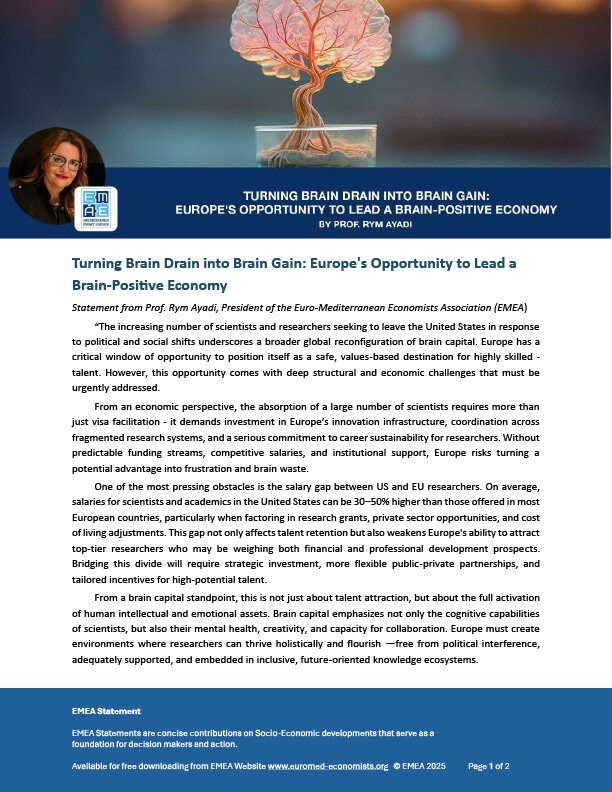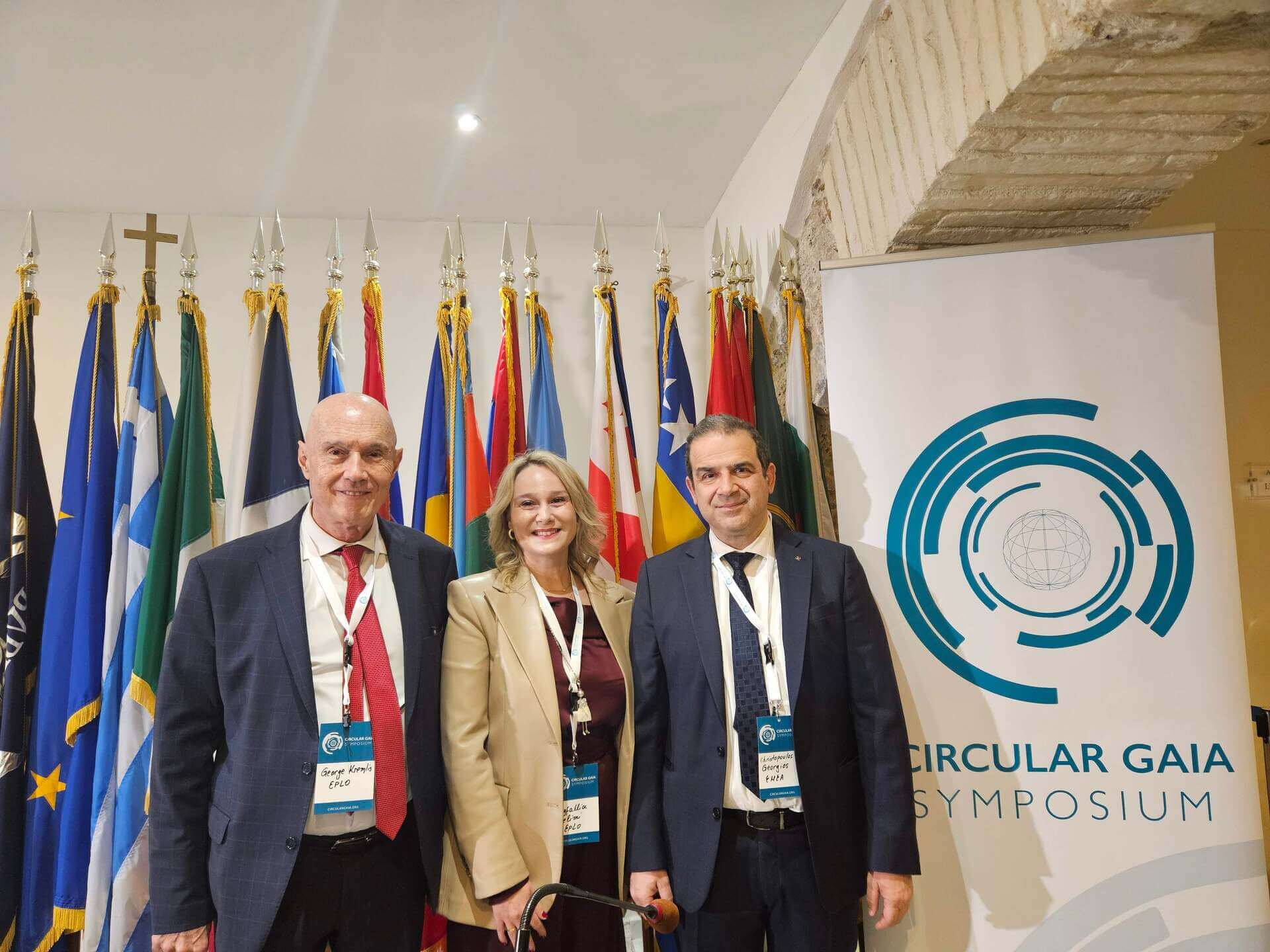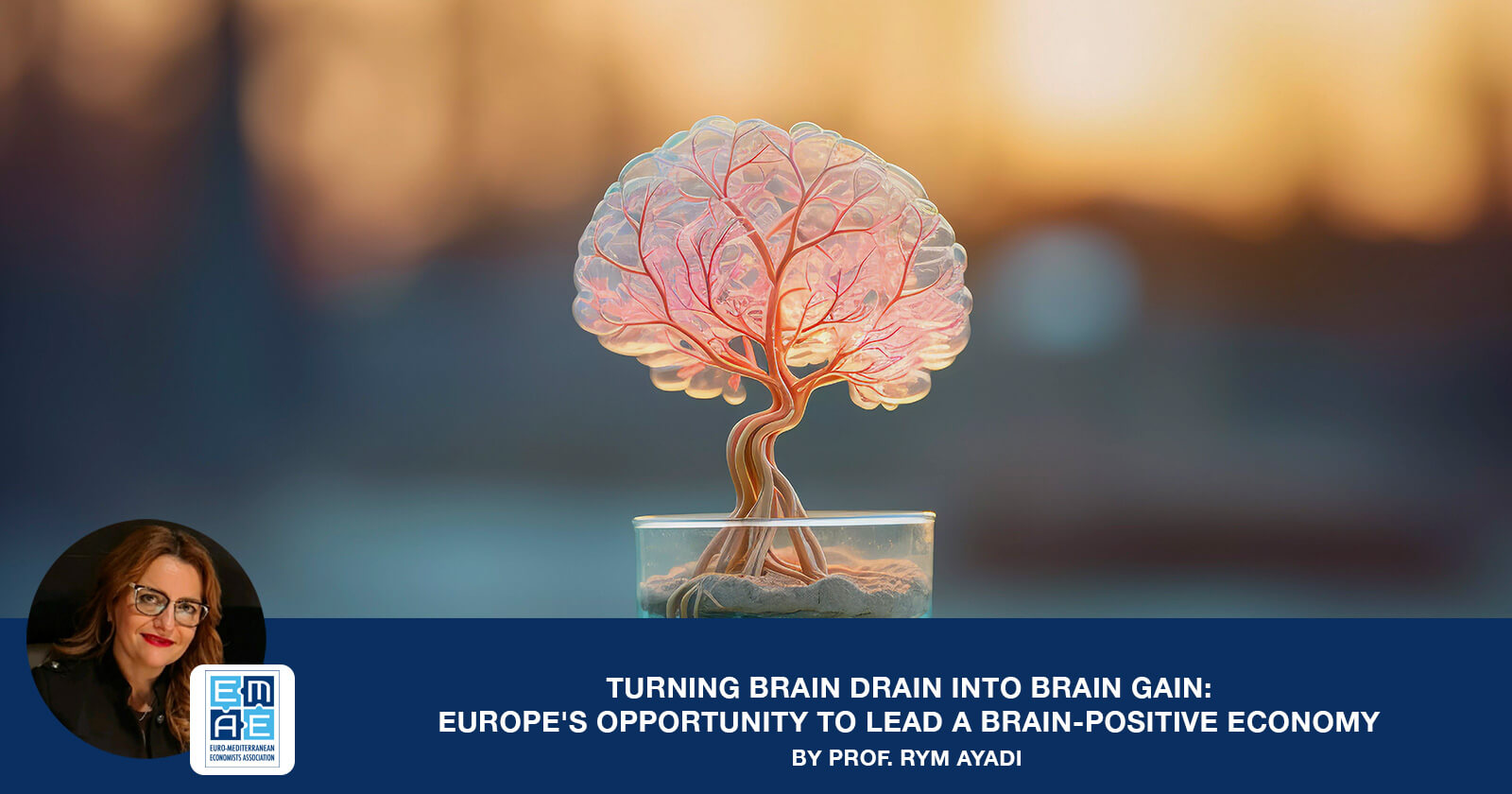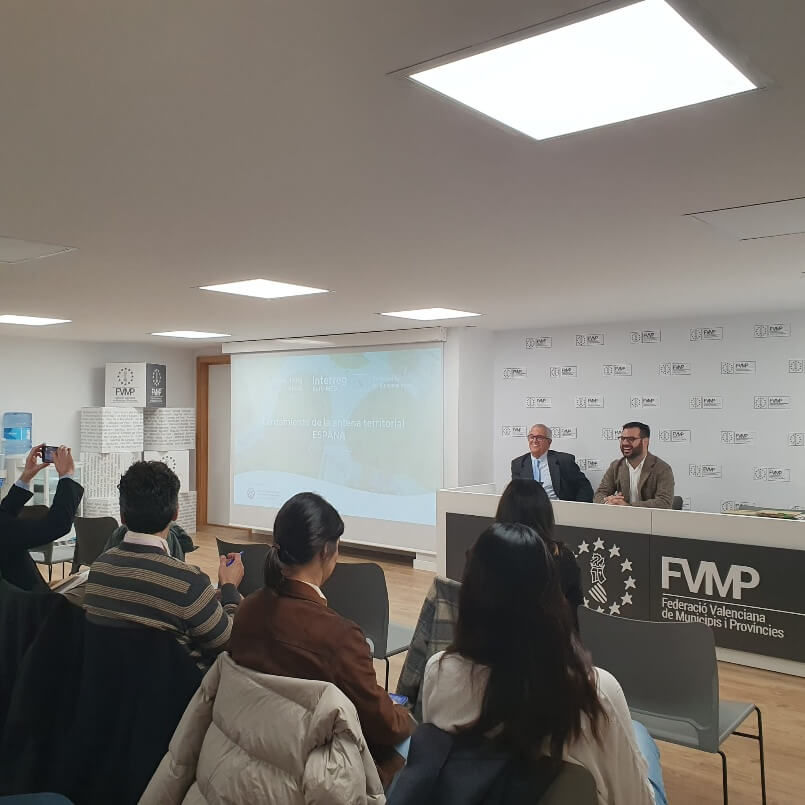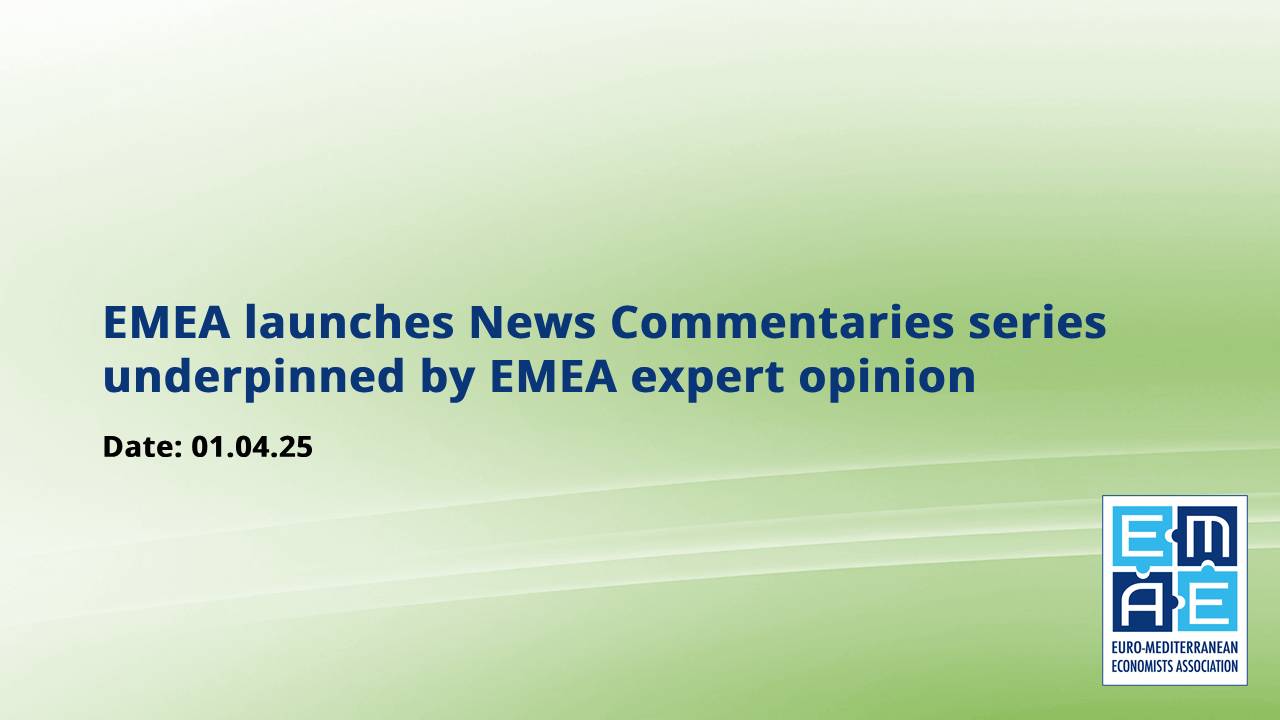The Euro-Mediterranean Economists Association – EMEA was honored to participate in the workshop titled “The Outcomes of COP29”, organized by the Circular Economy and Climate Institute of the European Public Law Organisation (EPLO). EMEA was represented at the event by George Christopoulos, the Association’s Communication Officer. The workshop took place on December 19, 2024, at the EPLO headquarters in Athens, Greece.
This event marks a significant step in strengthening the collaboration between EMEA and EPLO, as the two organizations are finalizing a Memorandum of Understanding (MoU) to solidify their joint efforts in promoting circular economy, sustainability and climate action. Highlighting this partnership, EMEA President Prof. Rym Ayadi has been appointed to the scientific committee of EPLO’s Circular Economy and Climate Institute, as well as to the one of the upcoming Circular Gaia Symposium.
Event Highlights
The workshop opened with welcome addresses by George Kremlis, Director of EPLO’s Circular Economy and Climate Institute and Chairman of the Greek Initiative at the UN on Protecting Cultural and Natural Heritage from Climate Change impacts.
In his opening speech George Kremlis has also announced his new annual scientific conference, the Circular Gaia Symposium (www.circulargaia.org) which will bring together leaders, scientists, experts and stakeholders from around the world and will cover holistically a broad range of thematic areas, such as circular cities, Energy transition, Green growth, Circular Blue economy, Circular digital economy and AI, Circular ESG, Circular tourism, Circular diplomacy, climate resilience, climate mitigation, Green financing, Circular Aviation & Shipping, Protection of cultural and natural heritage from climate change impacts and Civil society and humanitarian action related to climate change.
- Political and Policy Insights Panel
The first panel, “COP29: Political and Policy Perspectives,” explored the key outcomes of the global climate summit. Moderated by George Kremlis, it featured a distinguished lineup of speakers, including:- Arif Mammadov, Ambassador of Azerbaijan to Greece
- Jan Dusik, Deputy Director General for Climate Action, DG CLIMA
- Pedro Escosteguy Cardoso, Minister-Counsellor of the Embassy of Brazil in Athens
- Svetlana Zhekova, Vice-President of the UNFCCC Bureau for 2024 and Co-chair of the Eastern European Group
- Dimitris Kollias, Energy Transition Strategist and Advisor to the Greek Deputy Minister of Energy
The panel offered an in-depth analysis of the progress and challenges faced on the path to COP29 and its outcomes towards COP30, emphasizing the role of international collaboration in achieving climate goals.
- Business Sector and Energy Transition Panel
A second panel, moderated by Garyfallia Selimi, Deputy Director of the Circular Economy and Climate Institute of EPLO, delved into the business implications of energy transitions. Panelists included:- Konstantinos Chatzifotis, EU Affairs Manager, Motor Oil
- Monika Stanisheva, Founder, Green Transition Forum
- Gianni Chianetta, Chair, Greening the Islands Foundation; Board Member & Secretary, Global Solar Council
This discussion underscored the critical role of the private sector in driving sustainable energy solutions and circular economy practices and emphasized the importance of carbon credits a major achievement of COP29.
- Civil Society and Cultural Dimensions Panel
The final panel, “The Role of Civil Society and the Cultural Dimension: From Dubai & Baku to Belem,” spotlighted the intersection of culture, civil society, and climate action. Moderated by Prof. Antonia Moropoulou of NTUA, the panel featured:-
- Princess Dana Firas of Jordan, UNESCO Goodwill Ambassador and Vice-President of ICOMOS
- Antonio Jesus Antequera Delgado, General Subdirectorate for Coordination and Management of Cultural Assets, Ministry of Culture of Spain
Discussions highlighted the importance of cultural heritage preservation in the fight against climate change, bridging global efforts across continents. Mainstreaming culture in climate action is a key objective to be reinforced by COP30.
-
The European Public Law Organisation – EPLO is an international organization dedicated to the creation and dissemination of knowledge in the area of Public Law lato sensu and Governance, including but not limited to, inter alia, national, comparative and European public law, human rights law, environmental and energy law, and the promotion of European values for a better generation of lawyers and democratic institutions worldwide. Capacity and institutional building are key activities of the EPLO.
The Circular Economy and Climate Institute of EPLO is promoting circular economy and sustainable practices, climate, environmental and energy diplomacy, as well as the new holistic concept of “circular diplomacy” and will strive to mainstream circular economy in all policy areas. It offers and shares best practice and capacity and institutional building at all levels of governance, and with the private sector through Circular ESG. It participates in EU programs and in the organization of the annual Circular Gaia Symposium which will be held in Athens in the Autumn 2025.

